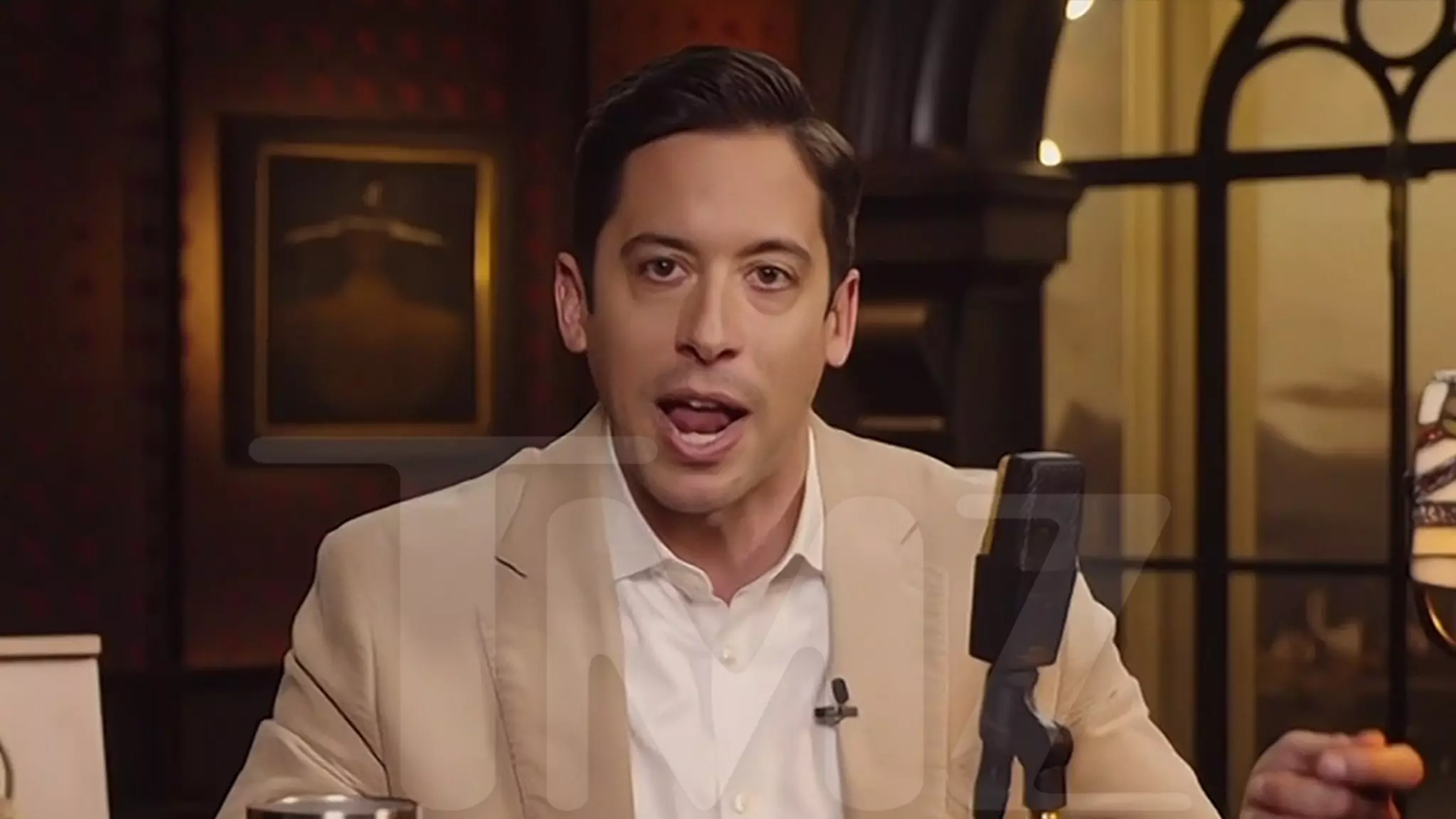The recent revelation that Qatar has gifted President Donald Trump a $400 million Boeing 747-8 jumbo jet has ignited a fierce debate, raising eyebrows across the political landscape. Conservative commentator Michael Knowles defended this surprising gift during a segment on “TMZ Live,” claiming that the uproar over potential misconduct is exaggerated. He provocatively characterized the jet not as a bribe but as an exemplary deal on a necessary asset for presidential duties. This rather light-hearted take on a serious matter prompts us to dive deeper into the implications of such international gestures toward American leadership.
The Perception of Generosity and Its Risks
While Knowles lightly dismissed the concerns regarding the jet by suggesting a fresh coat of paint would suffice, the underlying implications are far more serious. The Emoluments Clause of the U.S. Constitution explicitly prohibits American officials from accepting gifts from foreign entities without Congressional approval. The optics of receiving such a lavish gift can easily stir distrust among the public and political opponents. Despite being deemed a fantastic bargain by some, the transaction raises questions about the integrity of American governance and the potential for undue influence from foreign powers.
This isn’t merely about a jet; it’s emblematic of an ongoing struggle between the personal interests of leaders and the expectations of the citizenry. The idea that accepting such a substantial gift could be seen as above-board or harmless weaves a troubling narrative about how power dynamics operate on the global stage. A gift from a foreign government to the President necessitates scrutiny, not just for its legality, but for its moral implications.
Legacy and Historical Context
The timing of this donation also invites comparisons with the past. President Trump’s intention to utilize this aircraft for future endeavors, such as his presidential library, echoes the decisions made by former leaders like Ronald Reagan. However, one must consider whether those past practices hold up in today’s more scrutinized environment. What may have been somewhat acceptable in previous administrations is being placed under a sharper microscope now.
Moreover, Knowles’ remarks on Hunter Biden attempt to divert attention from the core issues surrounding the acceptance of such extravagant gifts. This effort to equate disparate situations doesn’t effectively address the legal and ethical frameworks that govern the behavior of public officials. Instead, it fosters a disheartening atmosphere where ethical standards can be conveniently dismissed by drawing parallels with other political figures.
Logistical and Financial Considerations
On a more practical level, there are significant logistical challenges that accompany this donation. The requirement for millions in upgrades and security checks to make the jet operational as Air Force One underlines the financial burden associated with this seemingly free gift. Advocates for maintaining the existing fleet have raised valid concerns about the rationale behind the need for a new aircraft. Given that the current Air Force One is still functional, why complicate matters with a new—albeit generous—addition?
In today’s tenor of fiscal accountability, one must question whether this decision emanates from sound judgment or serves the whims of personal ambition. As America navigates the complexities of contemporary governance, the traditional norms of conduct in office are being challenged and reshaped in ways few anticipated. The gift of a $400 million jet is not merely an extravagant gesture; it is a pivot point in the ongoing conversation about the ethical obligations of those at the helm of power.

